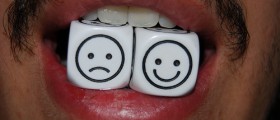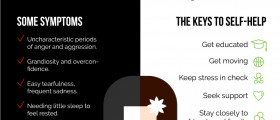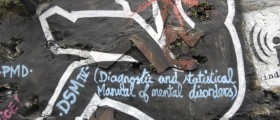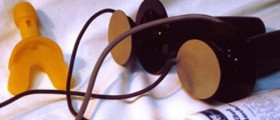
Bipolar disorder, also known as manic-depressive disorder is a psychiatric diagnosis used to describe a category of mood disorders that is characterized by rapid and sever mood swings. People affected with this disorder often have one or more episodes of much enhanced energy, cognition and mood levels, followed with one or more depressive episodes. These “high” moods are medically referred to as to mania. If they appear in the milder form, they are known as hypomania. Most of the patients are able to live normally between two episodes, but in some patients these mood swings rapidly alternate, in a pattern known as “rapid cycling”.
Treatment for bipolar disorder
Treatment is very important for all patients suffering from bipolar disorder. Unfortunately, more than 50 percent of all individuals affected with this mental illness try to commit suicide in some point in their lives. Managing bipolar disorder is therefore crucial, not only to improve the overall quality of patient’s life, but also to prevent the complications associated with this disorder. There are many different pharmacological and psychotherapeutic techniques used in treatment of bipolar disorder. Self help also plays an important role, and sometimes hospitalization is inevitable. However, medications are the backbone of this treatment.
Medications for bipolar disorder
The most important medications used in treatment of bipolar disorder are mood stabilizers, especially lithium. Lithium is efficient in treatment of depression and particularly of mania. Lithium provides both instant relief and works in the long term improvement. Moreover, it is the only known drug proven to reduce the risk of suicide in bipolar patients. Lithium is also used to augment other antidepressants. However, lithium has some side effects as it is responsible for weight gain in some patients. This drug increases appetite and thirst and may reduce the activity of thyroid hormone.
Medications for bipolar disorder also include anticonvulsants, since they act as mood stabilizers. These medications are mostly beneficial for people with rapid alterations in mood. Carbamazepine and lamotrigine are especially efficient in patients with rapid cycling bipolar disorder.
Atypical antipsychotics are used to manage manic episodes. These are antipsychotic tranquilizing drugs that tend to block receptors in the brain's dopamine pathways. People using this kind of medications will benefit from lower risk of suicides, better functional capacity, improved quality of life, and higher rate of responders.
Antidepressants are typically excluded from the treatment since mood stabilizers work better for people with bipolar disorder. However, omega 3 fatty acids may help to alleviate the symptoms of depressive episodes, but they are used only as a supplementary treatment.

















Your thoughts on this
Loading...